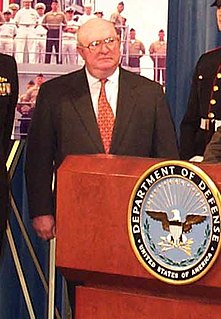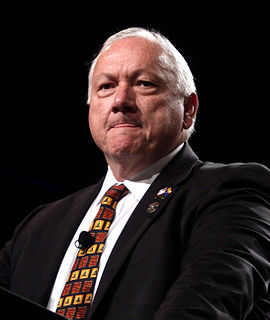A Quote by Marlin Fitzwater
This strategy represents our policy for all time. Until it's changed.
Related Quotes
Our struggle to put first things first can be characterized by the contrast between two powerful tools that direct us: the clock and the compass. The clock represents our commitments, appointments, schedules, goals, activities - what we do with, and how we manage our time. The compass represents our vision, values, principles, mission, conscience, direction - what we feel is important and how we lead our lives. In an effort to close the gap between the clock and the compass in our lives, many of us turn to the field of "time management."
There are those of us who are always about to live. We are waiting until things change, until there is more time, until we are less tired, until we get a promotion, until we settle down / until, until, until. It always seems as if there is some major event that must occur in our lives before we begin living.
If a British government experienced such a long and persistent resistance to domestic policy in England, then that policy would almost certainly be changed... We have asserted that we are political prisoners, and everything about out country - our arrests, interrogations, trials, and prison conditions - show that we are politically motivated.




































